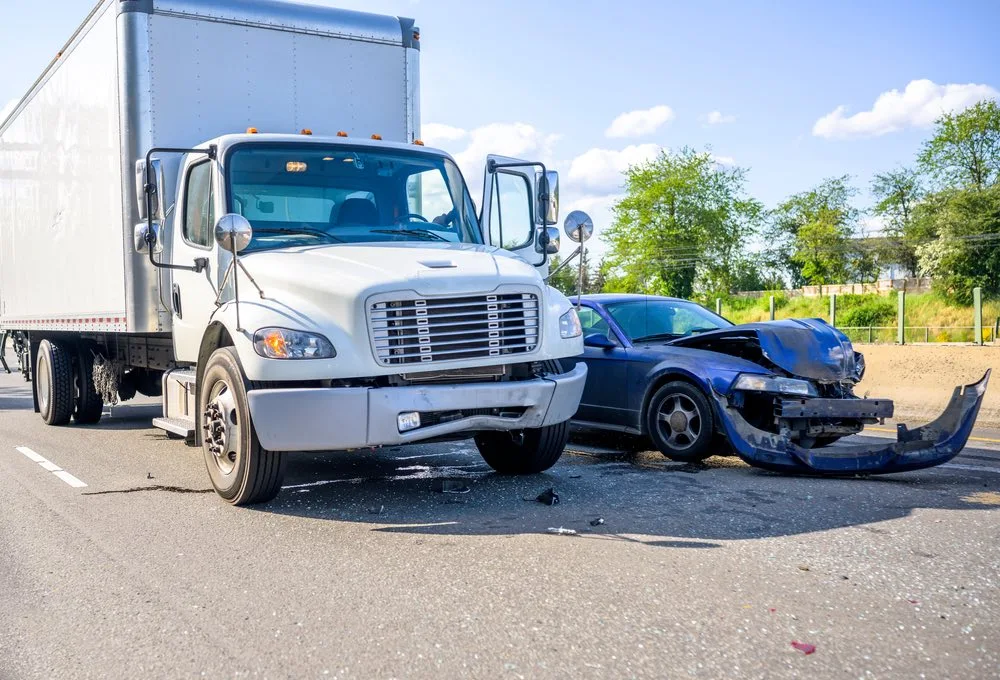Should I file a claim with my insurance if I’m not at fault? Many drivers wonder about the best course of action after an accident where they aren’t at fault. Contacting your insurance company can still be crucial. Doing so helps document the incident, expedites repairs, and provides immediate medical support, often more efficiently than relying on the other driver’s insurance company. However, this step can also affect your premiums. In this article, we’ll explore why you should consider filing a claim, the potential impacts on your insurance, and how to handle the process effectively.
Key Takeaways
- Contacting your insurance company after a not-at-fault accident is crucial for proper documentation, legal protection, and access to expedited repairs and medical treatment.
- In Missouri, understanding the at-fault insurance system is essential, as the responsible driver bears financial liability for damages, impacting claims and compensation.
- Promptly reporting an accident is necessary to maintain coverage and avoid potential rate increases or cancellation of your insurance policy.
Why Contact Your Insurance Company After a Not-At-Fault Accident?

After a car accident, reaching out to your insurance company is important, even if you’re not at fault. This step helps establish good faith and prepares you for potential claims against the other driver’s insurer. Notifying your insurance provider ensures proper documentation of the accident, crucial for validating your claim and preventing disputes. Additionally, your insurance can manage communications with the at-fault driver’s insurer, offering legal protection and reducing liability concerns.
In Missouri, where the at-fault insurance system is in place, the responsible driver is financially liable for the damages resulting from the accident. Understanding this system is important as it determines how claims are processed and compensation is awarded. Notifying your insurance company can also expedite car repairs and medical treatment, ensuring you receive the necessary care without undue delay. Failing to contact your at fault driver’s insurer promptly can jeopardize your access to protections and potentially lead to rate increases or cancellation of coverage.
Notifying your insurance company also facilitates quicker access to medical care and expedited car repairs. This means you won’t have to wait for the other driver’s insurance company to process the claim, allowing you to get back on the road and on the mend faster.
The following sections will explore Missouri’s at-fault insurance system, policy requirements, and how contacting your insurance can accelerate repairs and medical treatment.
Missouri’s At-Fault Insurance System
Missouri operates under an at-fault insurance system, meaning that the driver who is responsible for the car accident is financially liable for the damages. This system requires the at-fault driver to cover medical bills, property damage, and other losses resulting from the accident. If you find yourself partially at fault, your compensation may be reduced based on the percentage of your fault. This makes it even more critical to have proper documentation and legal representation to ensure your rights are protected.
While insurance rates generally remain stable after a no-fault accident, variations may occur based on the insurance company’s policies and state laws, especially in a no fault state. Understanding these nuances helps avoid surprises with your insurance premiums.
Immediately contacting your insurance provider after an accident helps establish the facts and ensures proper handling of your claims.
Policy Requirements and Obligations
You must contact your insurer if you have been injured or your vehicle has been damaged in a car accident. If you delay informing your insurer for more than 24 hours, it could jeopardize your access to their protections. Notify them as soon as possible. Failure to contact your insurance company promptly can lead to a rate increase or even cancellation of your coverage.
Some insurers may adjust premiums even after a not-at-fault accident if multiple claims are reported within a short period. Insurance companies evaluate several elements, including the frequency of claims made in the past, to determine premium changes. A driver’s past accidents and violations significantly affect insurance rates following a no-fault claim.
Therefore, it is crucial to understand your policy requirements and obligations to maintain your insurance coverage and avoid unnecessary premium hikes.
Accelerated Car Repairs and Medical Treatment
Contacting your own insurance company can expedite car repairs after a car accident. Your insurance provider can arrange repairs faster than waiting for the at-fault driver’s insurer. This means you can get back on the road sooner and avoid the inconvenience of being without a vehicle. Additionally, promptly contacting your insurance can lead to quicker access to medical care after an accident. Your insurance can help cover immediate repair costs while seeking reimbursement from the at-fault party’s insurer.
Contacting your auto insurance company and driver’s insurance company ensures efficient handling of vehicle repairs and medical treatment. This immediate response can be crucial, especially if you have severe injuries or significant vehicle damage.
The next section will discuss the information you need to provide to your insurance company to support your claim.
What Information Do You Need to Provide to Your Insurance Company?
When dealing with a car accident, providing accurate and detailed information to your insurance company is paramount. This includes exchanging names, addresses, phone numbers, insurance policy details, and license plate numbers with the other involved parties. At the accident scene, gathering evidence such as photos of vehicle damage, the accident area, and any visible injuries is crucial. This documentation helps clarify the circumstances and supports your claim.
Failing to inform your insurer promptly can lead to denial of coverage for claims related to the accident. Gathering and providing all necessary information, including witness statements and police reports, helps establish fault and support your personal injury case.
The next subsections will delve into the specifics of documenting the accident scene and providing medical bills and repair estimates.
Documenting the Accident Scene
Documenting the accident scene is a critical step in supporting your car accident claim. Capturing images of the accident scene, vehicle damage, and surrounding area helps clarify circumstances and establish the at-fault driver.
Collecting contact information from witnesses and obtaining their statements can also support your account of the accident. This evidence is invaluable in building a strong case and ensuring that your insurance claim is processed smoothly.
Providing Medical Bills and Repair Estimates
Providing detailed medical bills and repair estimates strengthens your car accident claim. Documenting all medical expenses incurred post-accident can help recover costs associated with your treatment. Accurate repair estimates for vehicle damage are necessary to demonstrate the financial impact of the accident.
This information is crucial for your insurance provider to assess and process your claim efficiently.
Understanding Your Insurance Coverage Options

Understanding your insurance coverage options is crucial to ensure you receive the compensation you’re entitled to after a car accident. Coverage options may include collision coverage, which covers damages to your vehicle regardless of fault, as well as underinsured motorist coverage that protects against damages caused by underinsured drivers.
The type of coverage you choose can directly affect your financial recovery, so it’s essential to be well-informed about your options.
Collision Coverage
Collision coverage applies to damages from car accidents regardless of fault, including when your vehicle hits another car or object. This type of coverage ensures that your vehicle repairs are covered, providing peace of mind and financial protection in the event of an accident.
Medical Payments Coverage
Medical Payments Coverage can help with costs for medical treatments sustained by you and your passengers regardless of fault. This coverage helps recover both economic and non-economic costs associated with medical treatment after a car accident.
If you suspect you might be injured, it’s crucial to see a doctor promptly to ensure you receive the necessary care.
Uninsured Motorist Coverage
Uninsured motorist coverage protects you from damages caused by drivers who do not have insurance. This coverage is vital as it provides financial protection in accidents involving uninsured or underinsured drivers.
Having this coverage can offer peace of mind and safeguard your finances when dealing with such situations.
The Role of a Car Accident Attorney

Consulting with a car accident attorney can make a significant difference in the outcome of your car accident claim. An attorney offers legal guidance, investigates the claim, assesses fault, and negotiates settlements on your behalf. If the at-fault driver’s insurance company offers a settlement, having a lawyer can ensure that the offer is fair and sufficient to cover your damages.
Insurance companies often offer lower settlements to victims without legal representation. An experienced attorney maximizes your compensation by negotiating with insurance providers and addressing accusations of shared fault.
The following subsections will discuss the specific roles of legal guidance and representation, and how an attorney can help maximize your compensation.
Legal Guidance and Representation
Working with experienced car accident lawyers simplifies evidence management. This allows you to concentrate on your healing. A car accident attorney can investigate the claim, assess fault, and negotiate settlements on your behalf.
If accused of sharing fault, enlisting an attorney’s help can mitigate allegations and prove you are not at fault. In Missouri, victims can sue the at-fault driver for damages, emphasizing the importance of obtaining legal representation.
Maximizing Compensation
Attorneys often negotiate with insurance providers to achieve settlements significantly higher than initial offers. Effective negotiation plays a critical role in ensuring that victims of car accidents receive the compensation they deserve.
Hiring an attorney not only aids in negotiation but also provides comprehensive support throughout the claims process, leading to substantial increases in the final compensation amounts awarded to victims.
Potential Impact on Insurance Premiums

Failing to report a car accident quickly can risk your ability to claim coverage, impacting your financial recovery. Insurance companies may impose rate increases or even cancel coverage if the accident is not reported promptly.
Insurance premiums may rise following a not-at-fault accident. However, the extent of the increase is influenced by your driving and claims history. On average, premiums may increase by about 10 percent after a not-at-fault accident.
Factors Influencing Premium Increases
Insurance companies often undervalue injury claims, and repeated claims can lead to higher premiums. In Missouri, if you are assigned fault in a car accident, your damages are reduced by the percentage of fault assigned to you, which may influence future premium rates.
Strategies to Mitigate Premium Hikes
A spotless driving record helps prevent premium increases after a car accident, as insurers reward good driving behavior. By driving safely and avoiding accidents, you can mitigate the risk of premium hikes even after filing a claim.
Statute of Limitations for Car Accident Claims in Missouri

In Missouri, individuals have a period of five years from the date of a car accident to file a lawsuit. This statute of limitations applies to both personal injury and property damage claims. Acting promptly within these time limits preserves your right to pursue compensation.
Deadlines for Personal Injury Claims
The statute of limitations for personal injury claims in Missouri is set at five years, allowing adequate time for injured parties to assess their injuries and file a claim. For minors, the statute of limitations does not begin until they turn 21, potentially extending their time to file a claim.
Deadlines for Property Damage Claims
Property damage claims in Missouri must be filed within five years from the date of the incident. Failing to file a property damage claim within this period generally results in the inability to pursue that claim.
This five-year period applies equally to all property damage claims arising from car accidents, making it essential to act promptly and preserve your right to seek compensation.
Contact the Dixon Injury Firm for Legal Assistance

The Dixon Injury Firm is committed to providing personalized legal services tailored to each client’s needs. Located in St. Louis, Missouri, the firm has recovered over $60 million for clients, helping them navigate their cases effectively. Whether you’ve been involved in a car accident or another type of personal injury case, the Dixon Injury Firm offers expert legal assistance to help you recover compensation.
The following subsections will discuss the benefits of a free case review and the firm’s no-fee-unless-we-win policy.
Free Case Review
Individuals can easily obtain a free case review by contacting the Dixon Injury Firm through their website or by phone. This complimentary assessment allows potential clients to understand their legal options without any commitment.
By initiating their cases with a free review, individuals can evaluate their circumstances and determine the best course of action for their legal needs. This initial step is essential for anyone looking to file a car accident or personal injury claim.
No Fees Unless We Win
Clients of the Dixon Injury Firm are only required to pay legal fees if their case results in a successful outcome. This no-fee-unless-we-win policy reassures clients, ensuring they don’t have to worry about upfront legal costs.
The firm is dedicated to achieving fair settlements for its clients, and this policy underscores their commitment to providing high-quality legal services without financial risk to the client.
Frequently Asked Questions
Should I contact my insurance company even if I’m not at fault in a car accident?
Contacting your insurance company is essential, even if you are not at fault, as it helps document the accident and provides legal protection. This proactive step can also aid in handling any potential claims efficiently.
What information do I need to provide to my insurance company after an accident?
You should provide your insurance company with names, addresses, phone numbers, insurance policy details, license plate numbers, photographs of the accident, and any witness statements. This information is essential for processing your claim effectively.
How can a car accident attorney help me after an accident?
A car accident attorney can assist you by providing legal guidance, managing evidence, and negotiating settlements to maximize your compensation. Their expertise ensures that you navigate the complexities of your case effectively.
Will my insurance premiums increase if I file a claim for a not-at-fault accident?
Your insurance premiums may increase after filing a claim for a not-at-fault accident, with an average increase of about 10 percent, depending on your driving and claims history. It is advisable to review your policy and consult your insurer for specific implications.
What is the statute of limitations for filing a car accident claim in Missouri?
The statute of limitations for filing a car accident claim in Missouri is five years from the date of the accident. It is crucial to act within this timeframe to ensure your legal rights are preserved.

